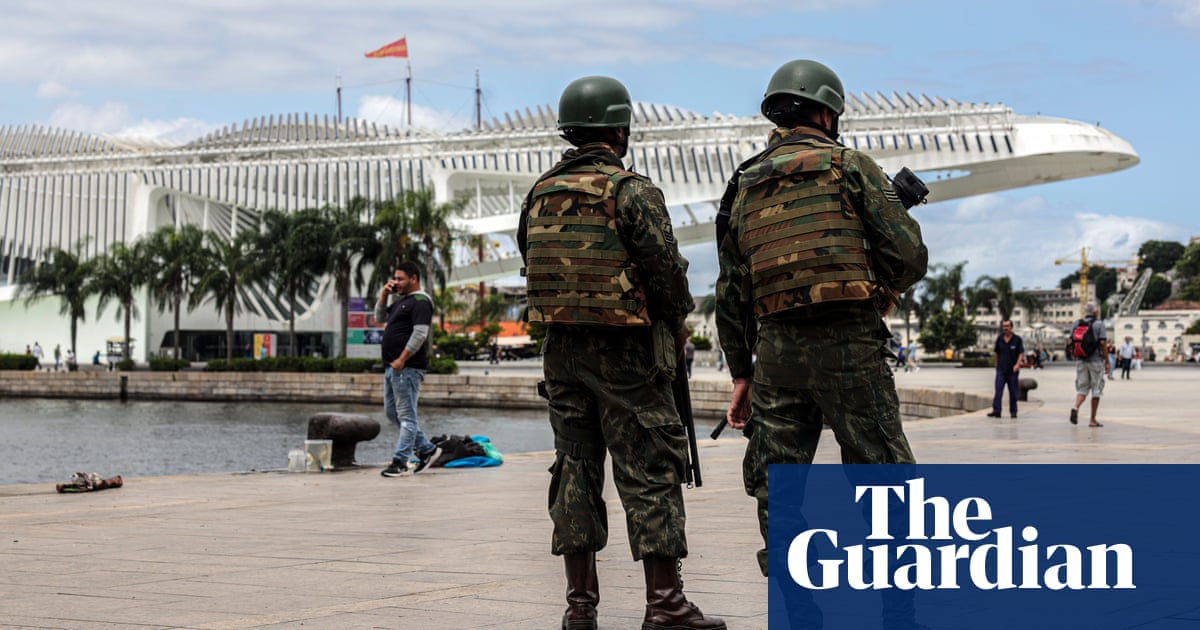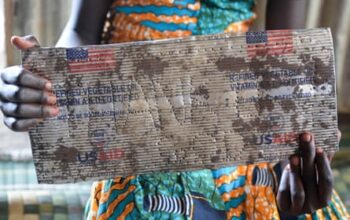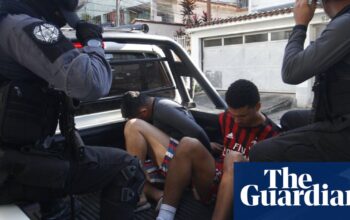
Many soldiers have been deployed to the ports, airports, and western border of Rio and São Paulo in order to suppress organized crime and address the recent increase in violence and bloodshed.
The military intervention – ordered last Friday by President Luiz Inácio Lula da Silva – will last until next May and is reportedly designed to cut off the drug and gun smuggling routes on which trafficking and mafia groups depend.
Over the past few months, the well-armed groups that have long held dominance over large areas of Rio have been making frequent appearances in Brazilian news due to a string of intense and fatal assaults.
In the past month, armed groups called “milícias” paralyzed a large portion of western Rio by setting multiple buses and a train on fire. Their goal was to prevent the arrest of a notorious mafia leader in the city. In early October, three physicians were fatally shot outside a luxurious beach hotel, allegedly mistaken for a criminal target of assassins.
There was a strong public response to photos taken by the police, which depicted armed drug dealers conducting military-style training in Complexo da Maré, a collection of slums near Rio’s main airport.
This week’s deployment will involve sending 600 members of the air force to both that airport and Guarulhos International Airport in São Paulo.
Over 1,000 navy personnel will be stationed at the container ports of Rio and Itaguaí in Rio state, as well as Santos in São Paulo state. According to Brazilian prosecutors, these ports are responsible for shipping large amounts of South American cocaine to Europe every month.
Meanwhile, 2,000 soldiers will increase their operations along the western borders of Brazil with Paraguay and Bolivia. This is where a significant amount of marijuana, cocaine, and weapons enter Brazil illegally.
Last week, Lula declared the military operation, stating that the government’s goal is to assist Brazil in breaking free from organized crime, gangs, drug trafficking, and gun trafficking. Lula explained to journalists that the escalating violence has become a pressing issue.
The security situation in Rio has worsened despite a decrease in the murder rate in recent years. The newspaper Estado de São Paulo expressed disappointment with the state’s inability to maintain control over violence and referred to Rio as being in a state of distress.
Pablo Nunes, a security specialist, stated that the current security crisis in Rio was instigated by the fatal shooting of a prominent militia leader known as Wellington da Silva Braga, also known as Ecko, in 2021.
Reworded: After Braga’s death, his forces lost control over large areas of west Rio, leading to a chaotic battle between rival paramilitary and drug trafficking groups. These groups fought for control over communities where they could extort residents or sell drugs. This increase in violence has made the westside of Rio the seventh most dangerous city in Brazil.
According to Nunes, from Rio’s Centre for Studies on Public Security and Citizenship, the departure of [Ecko] has left the entire territory up for grabs. As a result, a battle is unfolding, block by block and street by street. The current situation in Rio de Janeiro is completely chaotic and unmanageable.
Nunes stated that it is the responsibility of the federal government to assist state officials in addressing the ongoing issues in Rio. However, he expressed doubt about the effectiveness of deploying military forces.
“We lack a concrete plan. Our problem is massive, but all we are witnessing are haphazard efforts from various levels of government to demonstrate their actions. The state government claims to be taking measures, while the federal government claims the same. However, what is the overarching plan? What is the strategy? What are their ultimate objectives with these actions?” he inquired.
Source: theguardian.com


